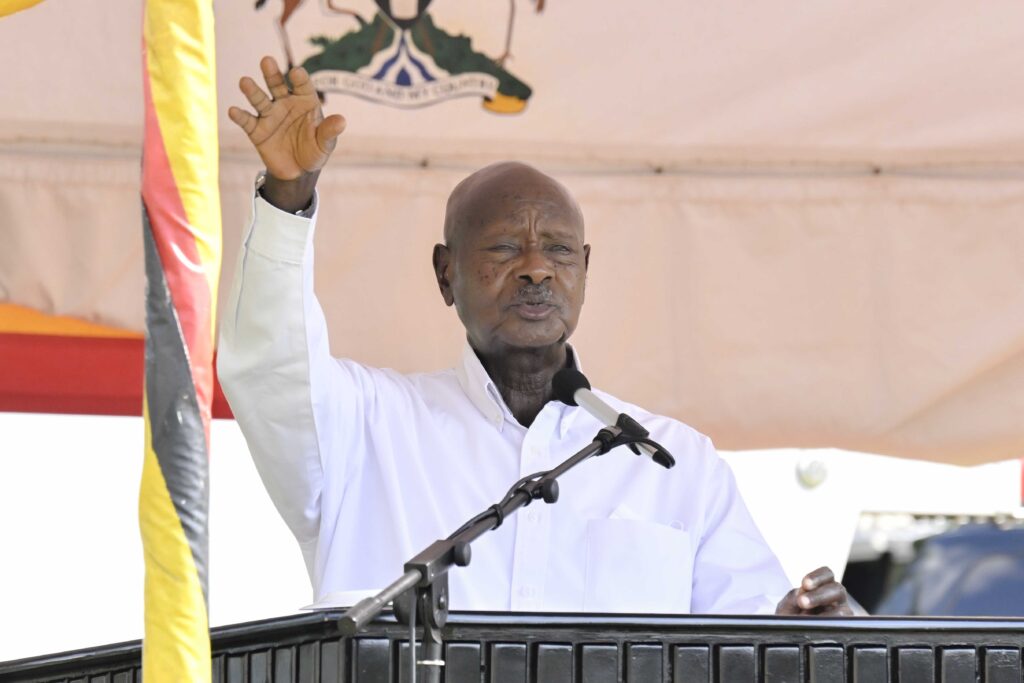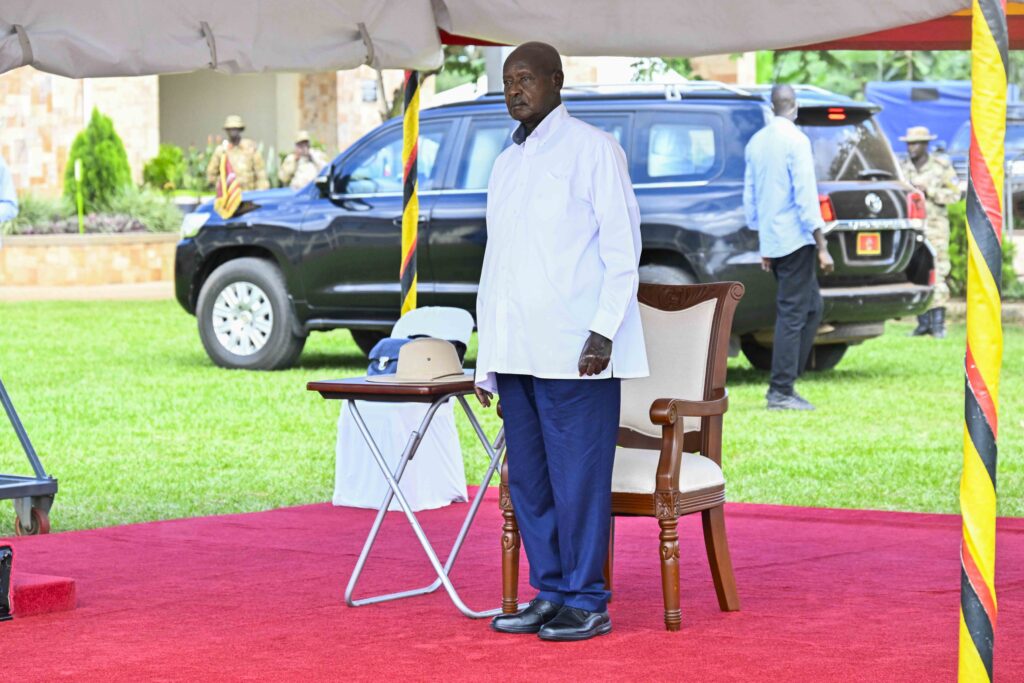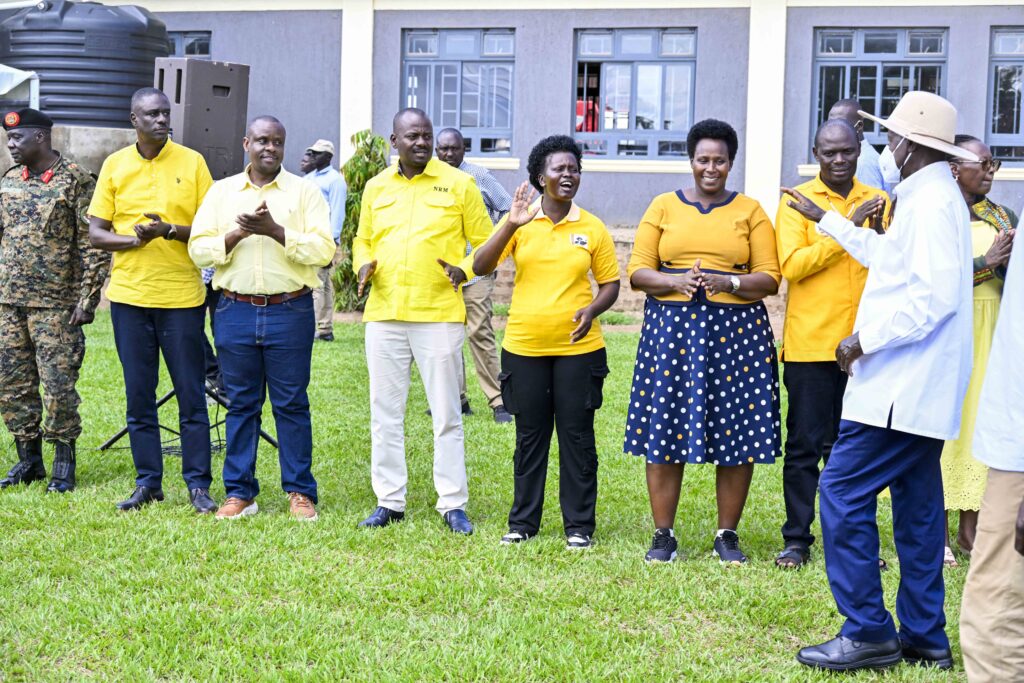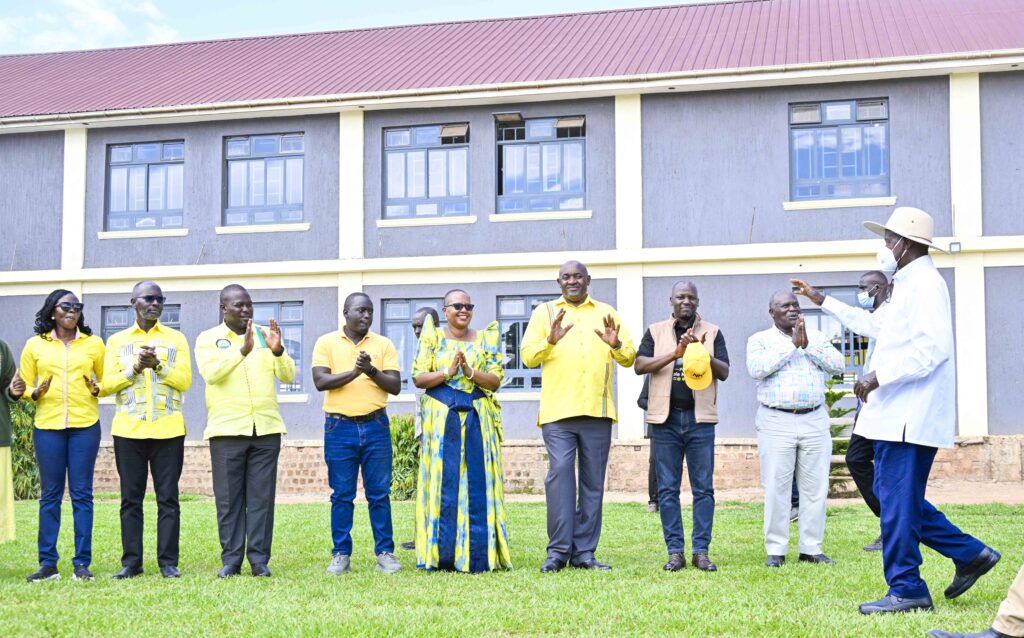
LUWEERO .
President Museveni has saluted members of Parliament for passing the controversial Uganda People’s Defence Forces (UPDF) Amendment Bill, 2025.
The Bill ,which awaits assent by Mr Museveni to become law , was approved amid heavy deployment of soldiers within and outside Parliament ,with limited debate from legislators ,with the Opposition walking out barely 30 minutes into plenary session .
A total of 197 legislators from the ruling National Resistance Movement (NRM) party attended the plenary and overwhelmingly voted in favour of all the proposed amendments in the Bill without any objection .
“I want to congratulate the Members of Parliament for passing the UPDF Amendment Bill.
There was going to be a serious problem because some people were saying if a soldier does commit a crime such as killing a person, involving in theft or rapes a woman, they should be taken to the sub county (civilian courts) instead of the court martial.

Those who were involved have to repent. There was going to be a serious collision between the army, parliament, and the courts of law, but they have saved us the embarrassment,” President Museveni said.
The enactment of the Bill followed a January 31 ,2025 landmark Supreme Court ruling in the case of Attorney General vs Hon. Michael Kabaziguruka ,which touched on the legality of trying civilians in military courts .
The President, who is in the Greater Luweero on the performance assessment tour on the Parish Development Model (PDM) and other wealth creation programmes, made the remarks on Wednesday, May 21,2025, while addressing a leaders’ meeting at Timnah Nursery and Primary school in Mabaale Village, Luweero District.
Parliament on May, 20 2025, passed the UPDF Amendment Bill, which expands military courts’ authority to try civilians under specific conditions, such as possession of military equipment or collaboration with military personnel in serious crimes like treason or murder.
“When we came from the bush, we decided that even the person who is not a soldier and decides to use a gun to perform a crime, we are going to charge them in the army courts,” the President emphasized, adding that it’s because of this strong resolve, and practicing what he termed as clean politics since 1986 that Uganda has remained peaceful and now focused on wealth creation.

“We told you that among the main pillars of development are peace in the country because, as you hear, many countries around us are rich in minerals and oil, but they don’t have peace, and many of their people are here in Uganda as refugees. We now have 1,800,000 people as refugees here in Uganda,” he noted.
He further emphasized that it’s only the National Resistance Movement (NRM) that is rooted in tenets of unity and national integration rather than sectarianism through the four principles of Patriotism, Pan Africanism, social-economic transformation, and democracy.
President Museveni urged the citizens to understand prioritization in public administration by knowing what is crucial and immediate, adding that, whereas development is needed, wealth creation should come first, through commercial agriculture, services, ICT, and Manufacturing.
He warned against land fragmentation describing it as a hindrance to wealth creation.
“I had my neighbour in Kisozi. He was a very rich man with four square miles of land and 500 cows. When he died, the children just divided, and that huge estate disappeared. And some of the children sold their share. So, this is very dangerous. If that happens to every generation, what will happen to the remaining families?” President Museveni wondered, adding that the modern way is to divide and still use the land collectively and share profits.

He gave an example of Hajjat Mariam Bayiga’s family in Ssekamuli, Bamunanika, which has succeeded in collective investment.
He reminded the people about his proposal of the seven activities in the 1996 NRM Manifesto of intensive agriculture for those with 4 acres or less, and those with bigger land to practice extensive agriculture.
“I proposed one acre for coffee, another acre for fruits (mangoes, oranges, or pineapples), grass for livestock in the third acre, and the fourth acre for food crops (bananas, cassava, etc). In the backyard, you can put piggery or poultry.
Those near the swamps can engage in fish farming. This was our message in the 1996 manifesto. You can hear that the few who have listened to us are doing well,” President Museveni said, adding that crops such as cocoa and palm oil can also yield well in one acre. Other items such as cotton, tea, sugar cane, and maize, he said, require larger pieces of land.